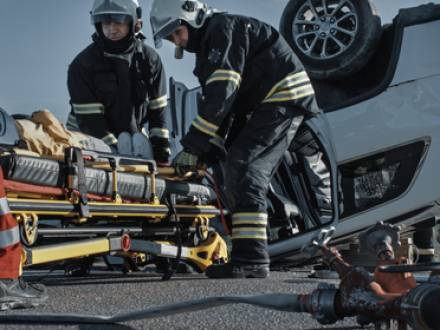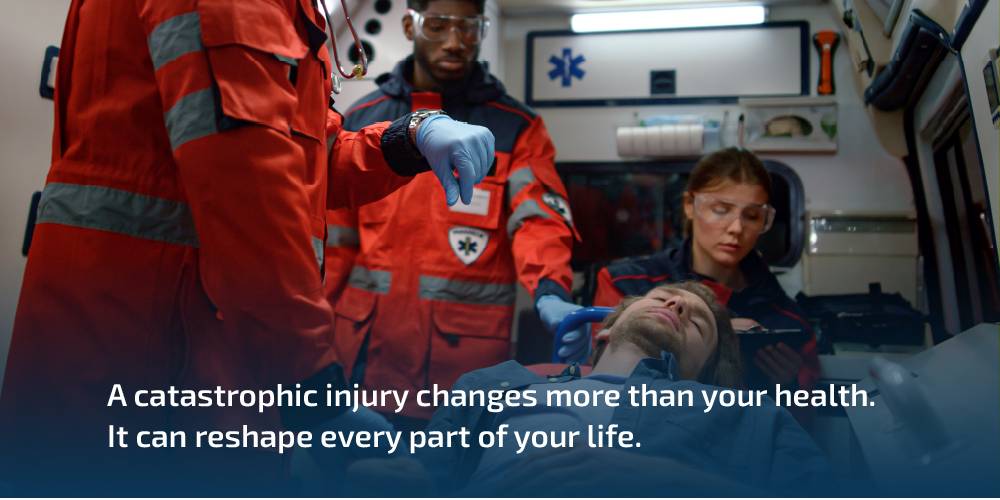How an Attorney Proves Catastrophic Injury Damages in Court
 Catastrophic injuries often lead to lasting physical, emotional, and financial challenges. These cases require strong legal support because proving damages involves more than just showing medical bills or lost income. An experienced Joliet, IL personal injury lawyer can collect evidence, work with medical professionals, and explain to the court how your injuries have affected your life in every way.
Catastrophic injuries often lead to lasting physical, emotional, and financial challenges. These cases require strong legal support because proving damages involves more than just showing medical bills or lost income. An experienced Joliet, IL personal injury lawyer can collect evidence, work with medical professionals, and explain to the court how your injuries have affected your life in every way.
What Qualifies as a Catastrophic Injury in a Personal Injury Case?
A catastrophic injury is a severe injury that permanently affects your ability to live or work as you once did. These injuries are not short-term. They often lead to disability, long-term medical care, or permanent physical changes. Examples include spinal cord injuries, traumatic brain injuries, severe burns, amputations, or multiple broken bones. Someone with a spinal cord injury may lose the ability to walk. A person with a brain injury may struggle with memory or speech. These long-term effects make the injury "catastrophic."
The Americans with Disabilities Act defines a disability as a physical or mental condition that substantially limits one or more major life activities. This federal law ensures that people with lasting injuries are protected from discrimination and can access needed accommodations at work, in housing, and in public spaces.
What Types of Damages Can You Recover in a Catastrophic Injury Case?
Damages are the financial and emotional losses caused by your injury. They are divided into economic and non-economic damages. Economic damages have inherent monetary value. Examples include:
-
Medical bills, hospital stays, and rehabilitation
-
Lost wages and reduced ability to earn income in the future
-
Expenses for home care, medical equipment, or home modifications
-
The cost to repair or replace damaged property, if it applies to your case
Non-economic damages cover harm that does not have a set dollar amount. These include:
-
Pain and suffering
-
Emotional distress
-
Loss of enjoyment of life or companionship
-
Physical disfigurement or scarring
-
Loss of independence or mobility
-
Ongoing fear or trauma related to the accident
Under 735 ILCS 5/2-1115.1, Illinois courts consider noneconomic damages when determining fair compensation. While there are no strict limits in most injury cases, this law helps guide how judges and juries balance financial and emotional harm.
In some cases, courts may also award punitive damages. These damages are meant to punish a person or company for extreme carelessness or intentional wrongdoing. They are not common but may apply when the defendant’s behavior was especially dangerous or reckless.
How Do Lawyers Use Evidence to Prove Catastrophic Injury Damages?
Your attorney must prove that your injuries were caused by someone else and that they have had a serious effect on your life. This requires strong evidence. Medical records are one of the most important forms of proof. They show the diagnosis, treatment, and long-term outlook for your condition. Photos, videos, and witness statements can also help the court understand how the accident happened and how it affected you.
Attorneys often use expert witnesses to explain complex topics. A qualified expert may testify in court to help the jury understand technical details. For example, a doctor might explain your injury and recovery process. An economist could show how your future earnings will be reduced.
Some attorneys also use "day-in-the-life" videos that show how you manage daily tasks after your injury. These videos help juries see how your injuries have changed your life and why compensation is needed.
What Role Do Medical Experts Play in a Catastrophic Injury Trial?
Medical experts are key witnesses in catastrophic injury cases. They explain how serious your injury is and whether it is likely to improve. Their testimony helps prove that your injury was caused by the accident, not by a prior medical condition.
For example, a neurologist might describe how a traumatic brain injury affects your memory, mood, and ability to work. A surgeon might explain that nerve damage or paralysis will require lifelong care. These experts give juries the medical facts they need to understand the full impact of your injury.
Can Emotional and Psychological Harm Be Proven in Court?
Catastrophic injuries often cause emotional and psychological harm as well as physical damage. Many people experience depression, anxiety, or post-traumatic stress disorder (PTSD) after a serious accident. These conditions can make recovery much harder.
Lawyers prove emotional damages by presenting therapy records, mental health evaluations, and testimony from doctors or counselors. Family members and friends may also testify about how your personality or mood changed after the accident.
Demonstrating this type of harm helps juries understand the complete impact of the injury. Emotional suffering is a real and important part of what you have endured, and the court considers it when deciding compensation.

What Challenges Do Lawyers Face When Proving Catastrophic Injury Damages?
Proving catastrophic injury damages is often challenging. Insurance companies may argue that your injuries are not as serious as you claim or that you already had health problems before the accident. They might also question the cost of future medical care or suggest that your recovery will be faster than expected.
Another challenge involves explaining complex medical or economic information to the jury. Attorneys must present this information in a simple and clear way so that everyone understands it.
Time is also a major factor. Under 735 ILCS 5/13-202, you usually have two years from the date of the injury to file a personal injury claim in Illinois. If you miss that deadline, you may lose your right to seek compensation altogether. Insurance companies are well aware of this rule. They may delay communication, offer low settlements, or use your lack of legal action to their advantage. Having an attorney ensures that your case is filed correctly, deadlines are met, and the insurance company cannot use time limits to weaken your claim.
Schedule a Free Consultation With a Will County, IL Catastrophic Injury Attorney
Cases involving catastrophic injuries are complex and require detailed evidence, strong experts, and a clear strategy. At Schwartz Injury Law, we have achieved major multimillion-dollar settlements for injury victims and their families. We are aggressive, willing to go to trial, and highly experienced in handling difficult cases. Our attorneys have earned a strong reputation for standing up to large insurance companies and getting results. With our dedication and proven track record, you can focus on your recovery while we fight for the justice and compensation you deserve.
Call 708-888-2160 today to schedule your free consultation with a Joliet, IL personal injury lawyer you can trust.








